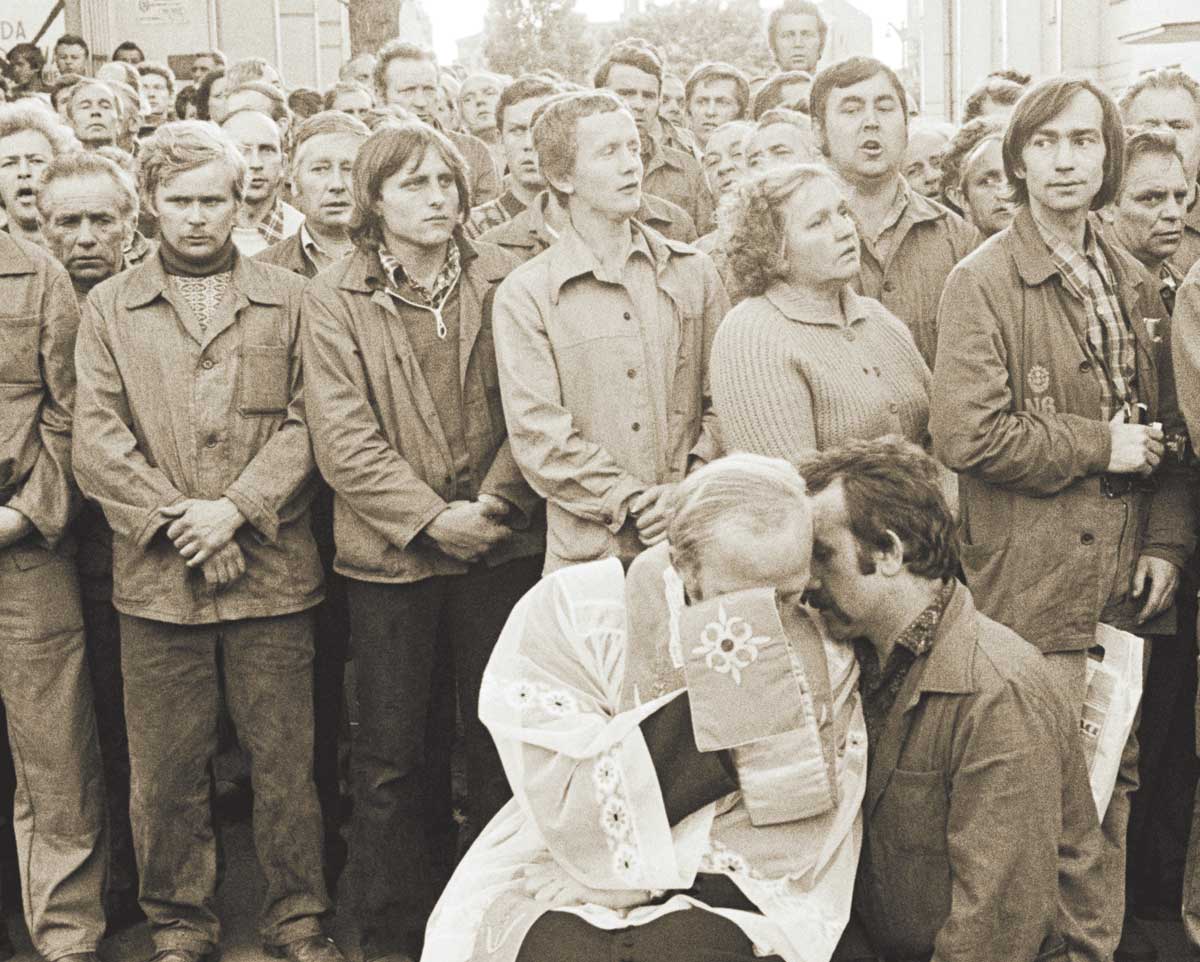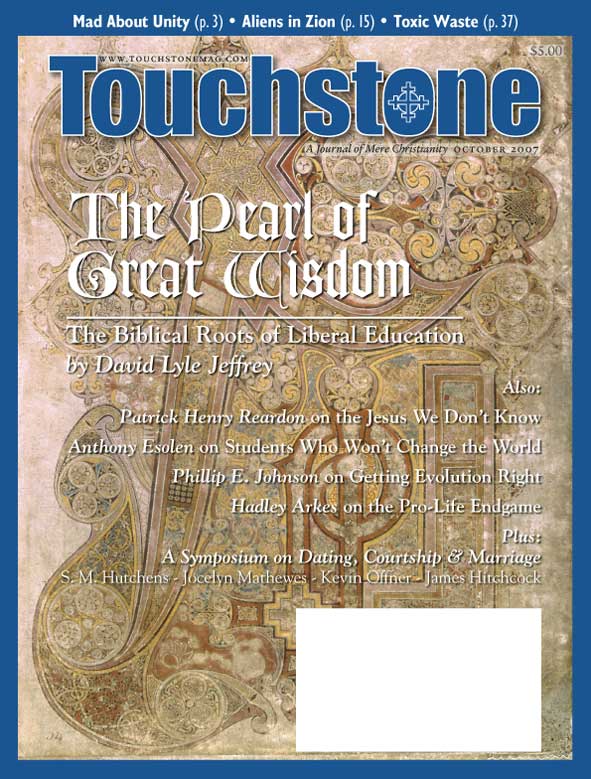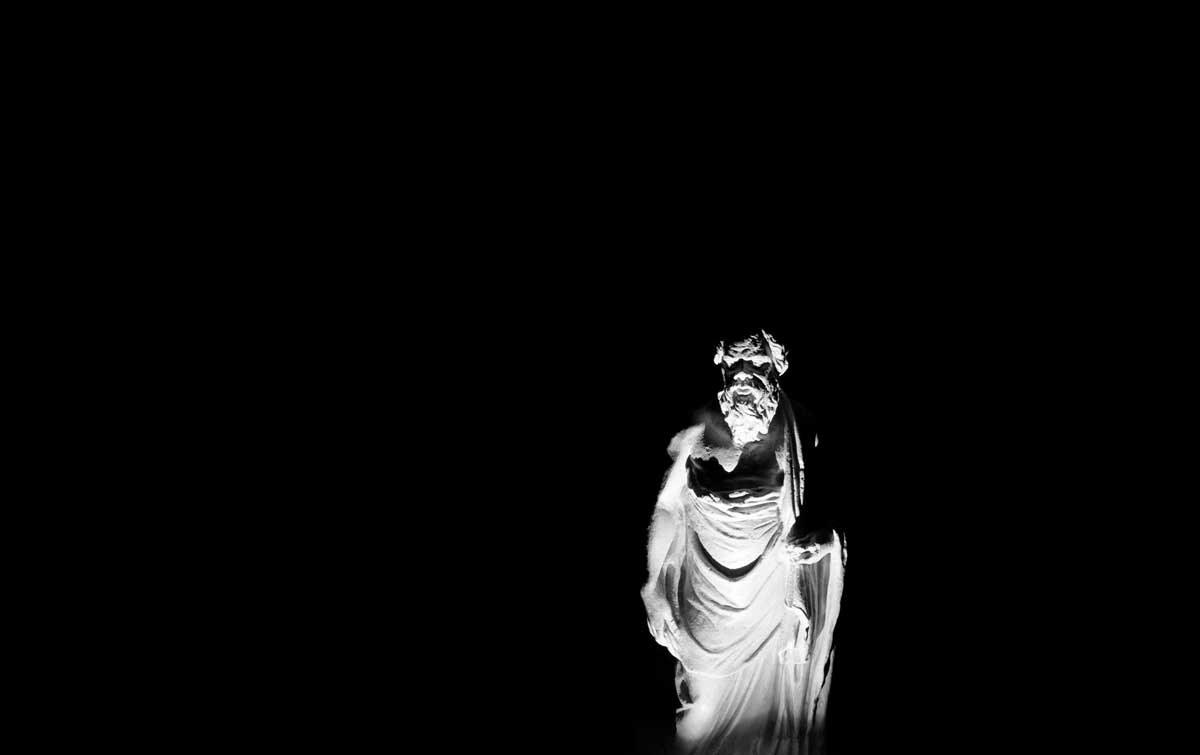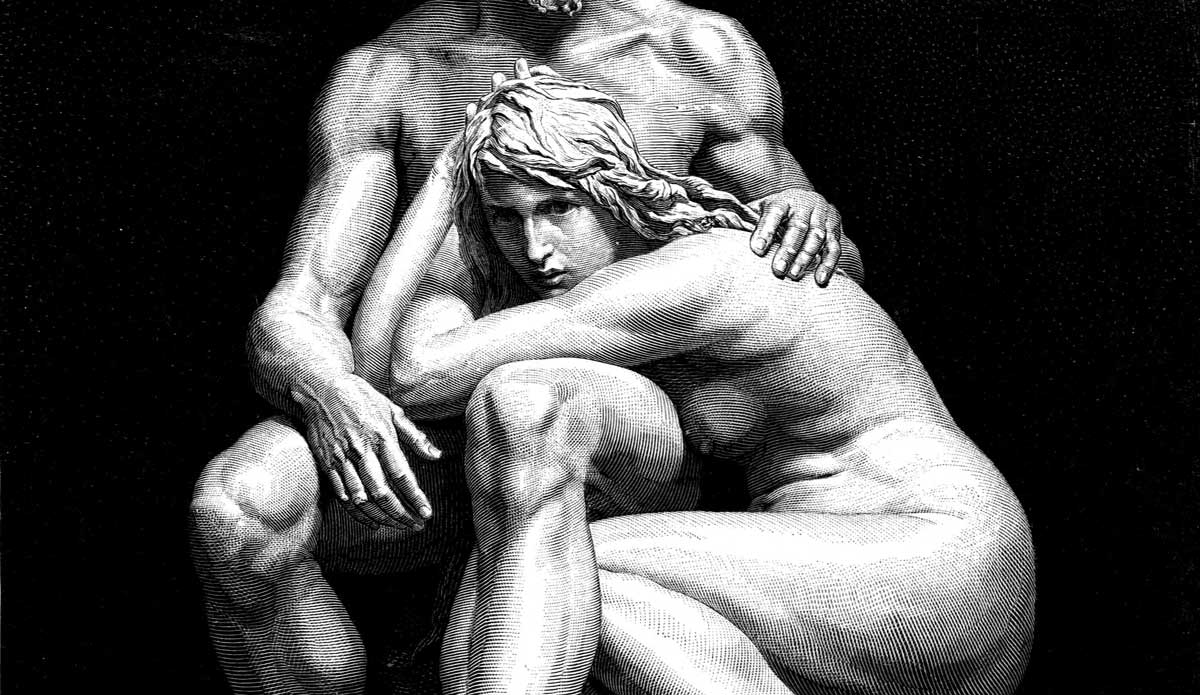God’s Fences
A Secular Faith: Why Christianity Favors the Separation of Church and
State
by Darryl Hart
Ivan R. Dee, 2006
(274 pages, $26.95, hardcover)
reviewed by Robert W. Patterson
Augustine is often praised for answering in The City of God the charge that the fall of Rome was caused by the rise of Christianity and the neglect of the worship of the old gods under whose blessings Rome had presumably risen to prominence. He is less remembered, however, for his corrective to the Christians of his day for misconstruing the relationship between religion and society.
Like the pagans, the Christians had been surprised and demoralized by the sacking of Rome. Because Christianity had become the religion of the empire under Constantine a century before, many believers presumed that civic acknowledgement of the Christian faith would safeguard the greatest empire on earth.
Augustine warned his flock not to confuse the eternal City of God (the church) with the temporal City of Man (Rome), encouraging them to set their sights on the city without foundations, whose builder and maker is God. Even the best of human civilizations are corrupt and will pass away. Only the kingdom of God will prevail when Jesus returns at the end of the age.
Augustine Ignored
One might presume that the parallels between the late Roman Empire and the United States today would endear American Christians, many of whom consider their country “an almost chosen people,” to the bishop of Hippo. But Darryl Hart, an accomplished historian and contributing editor of Touchstone, demonstrates in A Secular Faith how American Protestants have largely ignored Augustine’s lessons about the purposes of God in history, how the Christian faith relates to society, and the different spheres of church and state.
Following his Lost Soul of American Protestantism and That Old-Time Religion in Modern America, his latest work seeks to deconstruct the prevailing consensus about religion and public life. He wants to break the current obsession with how the latter needs the former and introduce the more vexing question of whether the whole paradigm has been good for the church.
An Orthodox Presbyterian elder, Hart concedes that while it transformed the Republican party, the “tsunami of faith-based politics” that began in 1980 exacted a huge theological cost. “Efforts to use Christianity for public or political ends fundamentally distort the Christian religion” because Christianity is “essentially a spiritual and eternal faith, one occupied with a world to come rather than the passing and temporal affairs of the world.”
Appealing to the provisional nature of the church as a foretaste of the kingdom that Christ will consummate when he returns, Hart calls upon his fellow believers to embrace a secular faith, one that entertains no illusions of “immanentizing the eschaton” or establishing heaven or even a redeemed society on earth. Christianity is all about grace, mercy, and hope for pilgrims who live among many civilizations, all of which are perishing.
In this way, Christianity is secular, an English adjective taken from the Latin seculorum, which means age, period, or generation. Christians are to live “hyphenated lives” as citizens of both cities, rendering to Caesar the things that are Caesar’s but never their hearts, which belong only to God.
Morals Without Sect
Exposing the inherent difficulties of mixing faith and politics, Hart asks: How can a faith like Christianity, which makes exclusive truth claims, inform a political order that welcomes a variety of religions?
To answer that question, today’s advocates for religion in public life have to claim that they are promoting only Christian behavior and values, not theology. The founders thought they could do the same for the new republic, “wanting the moral capital of religion without its sectarian down payment.”
But this quickly showed its limits. While the public education that offered Bible reading and generic moral instruction may have brought together the Unitarian Horace Mann of Massachusetts and the Presbyterian William Ruffner in Virginia, the compromise had no appeal to Roman Catholics, who believed that Bible readings could not be separated from doctrine, church polity, and worship.
Had American Protestants been less enamored with Whig republicanism and more attentive to Luther and Calvin, they would have agreed with Catholics on this point, as their confessions also teach that Christian morality makes no sense apart from teachings about sin and grace. Upholding the second table of the Ten Commandments, which outlines man’s duty to his neighbor, but not the first, which outlines man’s duty to God, is an act of “hermeneutical irresponsibility.”
The obvious lesson: If Protestants and Catholics couldn’t get together in the public schools in the nineteenth century, how can either today expect vague notions of religious faith or even “Judeo-Christian values” to serve the even greater cultural diversity of the twenty-first century?
That special revelation offers no clear word on public life that would give believers something unique to bring to the table bolsters Hart’s case. Not only does “Christianity in its classic formulations, especially the Protestant traditions of Lutheran, Reformed and Anglican, [have] very little to say about politics or the ordering of society,” but its teachings “are virtually useless for resolving American political disputes.”
Those who think otherwise forget that the state’s purpose is justice and the church’s purpose is mercy. “To confuse the two,” warns Hart, “is to misconstrue the bad cop (the state) and the good cop (the church).” Thinking that politics can advance a spiritual purpose only leads to frustration and a lack of effectiveness in either realm.
American Scrambling
Hart cites numerous examples of how American scrambling of church and state contradict the Constitution as well as Christian teaching. While American political rhetoric exalts the nation as “the last best hope of mankind” and as “a city set on a hill,” Jesus’ metaphor in the Sermon on the Mount—originally applied by Governor Winthrop of Massachusetts to the Puritan experiment—is a description of the church, especially her ministry of Word and sacrament.
This theft of the church’s identity for public purposes, Hart says, trivializes rather than honors religion, as has the equating of the promise of civil liberty with God’s gift of freedom from sin and guilt, a grave theological error that started with the Revolutionary War, regained currency during the Civil War, and was revived by President Bush in his second inaugural address.
A more blatant co-opting of the church, Hart argues, is the recruiting of faith-based organizations to deliver welfare services. Not only does this encourage them to look to federal agencies, not God’s people, to support the Lord’s work, but those agencies require them to alter their programs so they end up doing exactly what secular organizations do. The church then becomes an arm of the welfare state and loses sight of her own explicitly spiritual mission that no other institution can execute, a task that “is ultimately more important than the state’s.”
A Few Shortcomings
A Secular Faith is not perfect. Like contemporary partisans of “diversity,” Hart overstates the hardships that Protestant hegemony has imposed for non-Protestants, non-Christians, and even atheists in America. If it had imposed such hardships, the United States would not be the destination of choice of immigrants, legal or illegal.
He also comes down a bit hard on his fellow Anglo-American Protestants. They may have sought to maintain patterns of Christendom that their own Reformation unraveled, but what might be expected given the fact that sons of English Puritanism and the Scottish Reformation settled this land, established her cultural identity, and played a prominent role in the nation’s civic founding?
Hart may have wished that American Protestants had forged a more neutral morality based on natural law or what C. S. Lewis called the Tao, universal morals common to all religions. But in what other country has that been done? He may be holding them to a standard not applied to Muslims in Morocco, Hindus in India, or Catholics in Ireland. Who objects when the culture of these countries reflects the religion of the majority of their citizens?
These shortcomings of A Secular Faith, however, do not undercut its needed warning to American Christians about the perils of confusing the two cities and expecting too much of their faith in the civil realm, a fault that did not serve the Christians in Rome well in A.D. 410.
And by exploring the meaning of Jesus’ words, “My kingdom is not of this world,” Hart helps us understand that God may be less interested in using his people to change the world than he is in using the world, in the present seculorum, to shape and prepare his people for something much better, the City of God.
Robert W. Patterson is a former Presbyterian minister who is now Research Fellow of the Howard Center for Family, Religion & Society and writes on domestic policy issues in Washington, D.C.
subscription options
Order
Print/Online Subscription

Get six issues (one year) of Touchstone PLUS full online access including pdf downloads for only $39.95. That's only $3.34 per month!
Order
Online Only
Subscription

Get a one-year full-access subscription to the Touchstone online archives for only $19.95. That's only $1.66 per month!
bulk subscriptions
Order Touchstone subscriptions in bulk and save $10 per sub! Each subscription includes 6 issues of Touchstone plus full online access to touchstonemag.com—including archives, videos, and pdf downloads of recent issues for only $29.95 each! Great for churches or study groups.
Transactions will be processed on a secure server.
more from the online archives

19.10—December 2006
Workers of Another World United
A Personal Commemoration of Poland’s Solidarity 25 Years Later by John Harmon McElroy
calling all readers
Please Donate
"There are magazines worth reading but few worth saving . . . Touchstone is just such a magazine."
—Alice von Hildebrand
"Here we do not concede one square millimeter of territory to falsehood, folly, contemporary sentimentality, or fashion. We speak the truth, and let God be our judge. . . . Touchstone is the one committedly Christian conservative journal."
—Anthony Esolen, Touchstone senior editor








